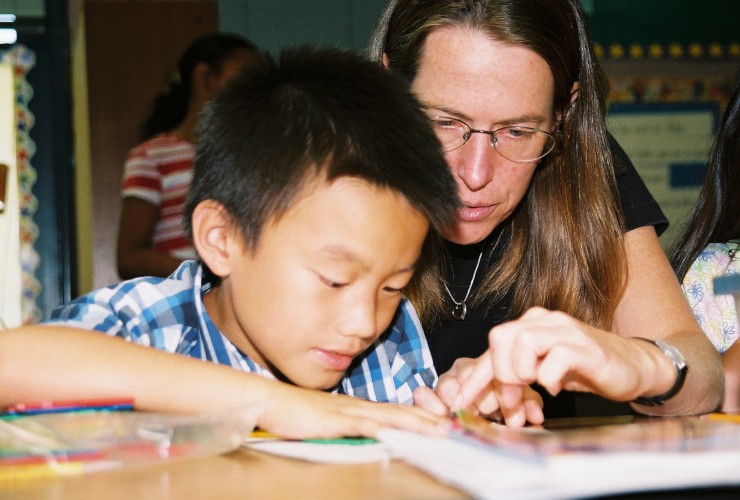Rebecca Ambrose
For Rebecca Ambrose, the key to teaching math to children lies in an understanding of how they solve problems before anyone has taught them.
“Kids use informal strategies and can figure things out in very interesting and sophisticated ways. What we observe about how they approach mathematical problem solving can inform the basis for teachers’ instruction,” said Ambrose.
Ambrose, who credits her approach to a method called Cognitively Guided Instruction (CGI), founded by Thomas Carpenter and Elizabeth Fenneman in the 1980s at the University of Wisconsin, is engaged in two research projects that have the potential to recast the way teachers approach mathematics instruction in elementary school and beyond.
At Glenwood Elementary in North Sacramento, Ambrose and graduate student Garrett Kenehan investigated children’s understanding of three-dimensional geometry. Meeting with third grade students once a week for several months, the researchers were interested in how children think about geometry.
“Geometry has long been treated like the step-child of math,” said Ambrose. “It isn’t taught much until high school and then students have a lot of trouble with it. If we don’t give kids the opportunity to develop spatial thinking, only those few who have real gifts in this area will pursue and excel in careers that require this understanding.”
This research looked at whether an activity like building three-dimensional geometric objects is effective in engaging students in general math inquiry. An in-depth research article is due out next year.
In February 2004, Ambrose embarked on a three-year project at Markham Elementary in Vacaville, California, funded by the California Postsecondary Education Commission. This work is exploring how children’s thinking and the way they approach mathematical problem solving can inform professional development for teachers.
Collaborating on the project with UC Davis mathematics professor Evelyn Sylvia, Ambrose meets with twelve K-6 teachers monthly. They discuss videotaped sessions of their students and discuss individual interviews that are conducted with the children to better understand how children approach math problems.
Ambrose says she is excited about this project because it “employs all the principles of success: it’s school-based, focused on what teachers are doing in the classroom, and we are discussing both the math and the teaching of the math. Our hope is that we will come out of this with some design principles for professional development in math.”









